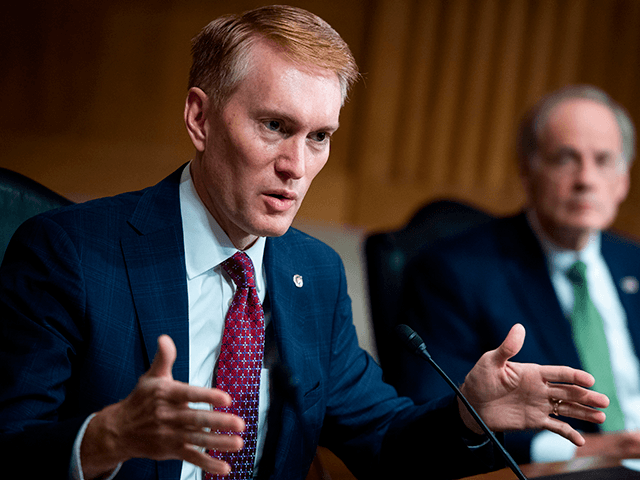Sen. James Lankford (R-OK) pointed out during Wednesday’s Senate hearing on voting irregularities that more Americans have expressed the belief that fraud occurred in the 2020 presidential election than those who believed that Russians interfered in the election of 2016.
“[In] December 2016, there was a poll that was done on if the American people believe that the Russians interfered and changed our election. At that time, 32 percent of the people believed that the Russians had influenced the outcome of the election,” Lankford said during Wednesday’s Senate Homeland Security Committee, explaining that lawmakers launched a series of hearings based on the belief expressed by nearly one-third of Americans.
“Certainly, the Russians were trying to interfere in our elections, but we spent millions and millions of dollars investigating it, going through it,” he said, adding that he and Sen. Amy Klobuchar (D-MN) worked on election insecurity legislation and noting that lawmakers held “six different public hearings on Russian interference — just on that one topic.”
“And it all started with 32 percent of Americans in 2016 believing the Russians had interfered in our election,” he explained.
“A few days ago, a poll asked the question, ‘Do you believe there was election/voter fraud in the presidential election between Joe Biden and Donald Trump?’ This December, 46 percent of the voters in America have said yes, 45 percent saying no,” he said, citing the McLaughlin & Associates survey released this week.
“Interestingly enough, Trump voters saying there was fraud– 80 percent,” said, noting that 16 percent of Biden voters felt the same way.
“The reason I bring that up is we watched what happened in 2016 with what the American people thought and saw, and so we engaged with hearings, we looked at the issues and determined, do things need to change,” he continued, suggesting that the American people’s current sentiments warrant a similar process this election year, particularly with a greater share of Americans expressing concerns.
Much of the work to get paper ballots into states, he said, occurred because Congress engaged where they saw an “obvious problem,” fixing issues that could become “potential” problems.
“Now, amazingly, after this election, all kinds of issues have come up and … everyone seems to be saying move on,” he said, noting that the only “real” difference seems to be the outcome of the election.
It is reasonable, he continued, to address the mounting questions that have been raised since the November 3 election:
It’s reasonable to be able to ask if people can drift around and gather ballots from other people and do ballot harvesting — and in some states that’s legal — does that provide an opportunity for fraud? I think the obvious answer is yes. … If you mail a ballot to everyone in the state even if they didn’t ask for it, does it provide an opportunity for fraud, especially when the state did not first purge or verify those addresses and they sent thousands of ballots to people that no longer live there?
Lankford used Nevada residents as an example, noting that he has talked to some who received “multiple ballots” for people at their respective homes — people who no longer live there.
“That’s a problem,” he said.
“And for some reason, the other side was very focused on ‘we’ve got to fix the potential for problem from 2016,’ but in 2020 — when there’s potential for problem in things that have been shown — everyone seems to say, ‘Move along, let’s not discuss this,'” he added.

COMMENTS
Please let us know if you're having issues with commenting.